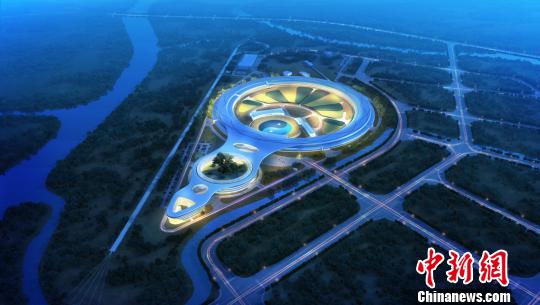BEIJING, June 30 (Xinhua) - China's two major science infrastructure projects, a new radiation light source device and an advanced biomedical imaging facility, have just been launched in Beijing, aimed at strengthening the country's fundamental research.

(Photo: Chinanews.com)
The two projects were inaugurated Saturday in the capital's northern Huairou District. They will be put into service in 2025 and 2023 respectively.
The light source device, the High Energy Photon Source (HEPS), is expected to cost 4.76 billion yuan (about 693 million US dollars). Built by the Institute of High Energy Physics under the Chinese Academy of Sciences (CAS), it looks like a super microscope and will be one of the world's few fourth-generation synchrotron light sources with the ability to probe the inner structures of materials.
A synchrotron light source is a source of electromagnetic radiation usually produced by a storage ring. The HEPS is expected to produce the world's most powerful X-rays.
Dong Yuhui, deputy director of the project, said the facility would become an important platform for basic scientific research, with wide applications in the fields of advanced materials, aerospace, energy and medicine.
The other project is a multi-modal trans-dimensional biomedical imaging facility, which will cost 1.74 billion yuan.
It will be jointly built by Peking University and the Institute of Biophysics under the CAS.
The state-of-the-art equipment, with a series of cutting-edge scanning devices, can capture images of the human body at different scales at the atomic level.
It will help scientists improve their abilities to study life sciences, including accurately describing the basic biological principles, discovering the pathogenesis of diseases, and promoting more research on brain science and cancer, according to deputy chief Engineer Sun Yujie.
Fourteen more science facilities and research platforms will be launched in Huairou later this year.


